Search Images
Browse Content (p. 1105)
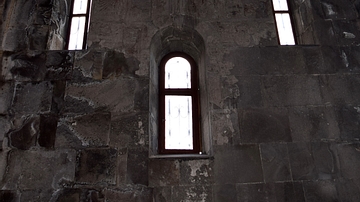
Image
Windows at Tatev Monastery
Medieval windows at Armenia's Tatev Monastery.
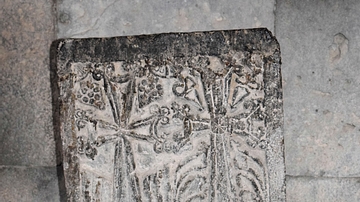
Image
Khachkar with Two Crosses at Tatev Monastery
This memorial khachkar can be found at the medieval Tatev Monastery in Armenia.
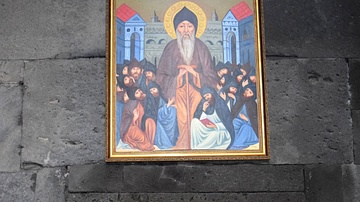
Image
Tomb of St. Gregory of Tatev
Gregory of Tatev (1346-c. 1410 CE) or "Grigor Tatevatsi" was an Armenian philosopher, poet, theologian, and painter who was cannonized by the Armenian Apostolic Church. While he was an abbot at Tatev, he oversaw a flowering of learning and...
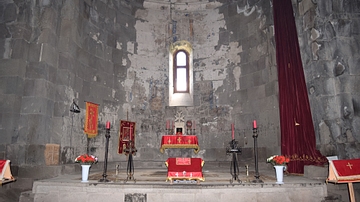
Image
Altar at Church of St. Pogos and Petros
This is the high altar at the Church of St. Pogos and Petros at Tatev Monastery in Armenia. This church dates from the end of the 9th century CE.
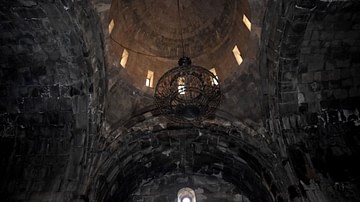
Image
Interior Dome and Arches of St. Pogos and Petros Church
This is the interior dome and arches of the Church of St. Pogos and Petros at Tatev Monastery in Armenia.
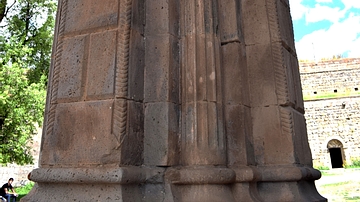
Image
Armenian Column outside Church of St. Pogos and Petros
This is an Armenian column outside the Church of St. Pogos and Petros at Tatev Monastery in Armenia. This church was originally built c. 895-906 CE.
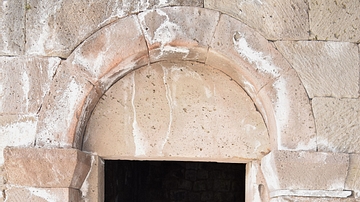
Image
Doorway at Tatev Monastery in Armenia
Originally established in the 4th century CE, Tatev Monastery, which is located on a large basalt plateau in Armenia's Syunik Province, flourished as a center of learning and culture during the Middle Ages.
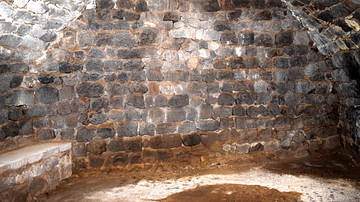
Image
Unique Stone Architecture at Tatev Monastery
Tatev Monastery was one of medieval Armenia's most important religious and cultural centers during the Middle Ages. It's famous throughout the Caucasus for its stone architecture and location on a large basalt plateau near the Tatev village...
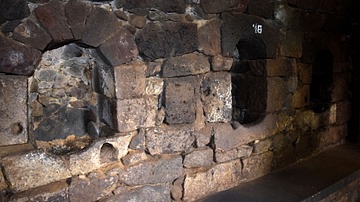
Image
Stone Architecture at Tatev Monastery
Tatev Monastery was one of medieval Armenia's most important religious and cultural centers during the Middle Ages. It's renown for its stone architecture and location on a large basalt plateau near the Tatev village in Syunik Province in...
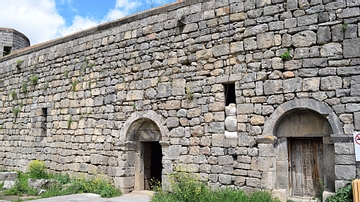
Image
St. Grigor Lusavorich Church at Tatev Monastery
The single-nave St. Grigor Lusavorich Church was originally comissioned in 848 CE by Prince Philip of Syunik.